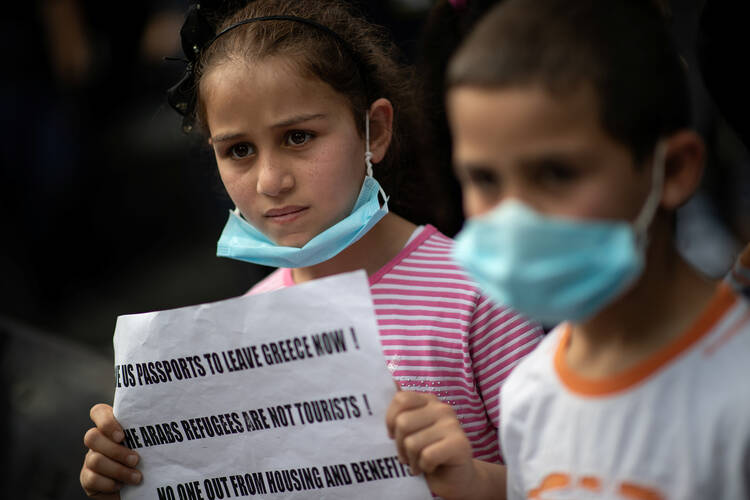Loving and gracious God,
Today we are celebrating World Refugee Day, when throughout your creation, we are invited to remember the now 70.8 million refugees and other forcibly displaced people among us. They are, as you in eternal light know far better than we, most basically our fellow human beings. They are your beloved sons and daughters, made in your image, the image of the one God whom Jews and Christians and Muslims all alike worship. They have been driven from home. They lack secure shelter. Their children have difficulty finding schooling. Food is scarce.
Help us, God of mercy, to realize how much more threatening the pandemic is for a forcibly displaced person.
But this World Refugee Day, June 20, Creator God, will be unlike any other. For when the day was first celebrated in 2001, on the 50th anniversary of the United Nations’ 1951 Refugee Convention, no one could have imagined that the promise of a united humanity would now be perversely realized through our subjection to the single pathogen we call Covid-19.
In your place of peace, Redeeming God, you see how in this pandemic, without respect to class or race or gender or religion, so many displaced poor human beings are cruelly united in being threatened with sudden and often agonizing death. Do you see how we stumble in speaking these troubling words?
Help us, God of mercy, to realize how much more threatening the pandemic is for a forcibly displaced person. Guide us to prayer. Remind us that the promise of Christianity is that in your son Jesus Christ we might all be one, “neither Jew nor Greek, slave nor free.” (Gal 3:28)
Before you, Holy One, we are all called together, beyond natural divisions, beyond all borders, to be one, transformed human community. But the coronavirus, like death itself, likewise knows no borders.
We believe that you have made us all for life, and that you care in a special way for all the men, women and children whose lives are now most endangered. Gracious God, help us to remember. Teach us how to respond. For your glory is found in your created sons and daughters fully alive.
Amen.










